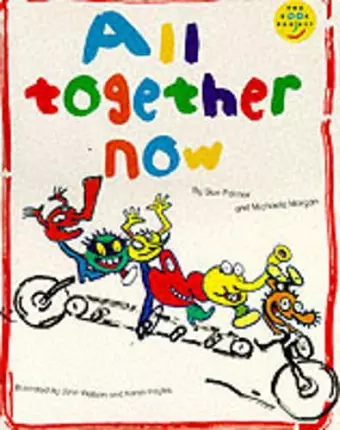A History of Private Life
Arthur Goldhammer translator Georges Duby editor Michelle Perrot editor Phillippe Ariès editor
Format:Paperback
Publisher:Harvard University Press
Published:14th Apr '94
Currently unavailable, and unfortunately no date known when it will be back

The nineteenth century was the golden age of private life, a time when the tentative self-consciousness of the Renaissance and earlier eras took recognizable form, and the supreme individual, with a political, scientific, and above all existential value, emerged. The present book, fourth in the popular series, chronicles this development from the tumult of the French Revolution to the outbreak of World War I—a century and a quarter of rapid, ungovernable change culminating in a conflict that, at a stroke, altered life in the Western world.
Guided by six eminent historians, we move from the Enlightenment of the eighteenth century, which conceived of man as a noble creature of reason, into nineteenth-century Romanticism with its affirmation of distinctively individual creatures in all their mystery and impulsiveness, exalting intuition as a mode of knowledge. More and more, men and women wanted to sleep alone, to be left alone to read and write, to dress as they pleased, to eat or drink anything they liked, to consort with and love whomever they fancied. Growing democracies advanced those wishes to the status of rights, expanding markets stimulated them, and migration encouraged them. That new frontier, the city, simultaneously weakened family and community constraints, spurred personal ambitions, and attenuated traditional beliefs.
The authors dramatize the nineteenth century’s organized effort to stabilize the boundary between public and private by mooring it to the family, with the father as sovereign. Such chapters as “The Sweet Delights of Home,” “The Family Triumphant,” and “Private Spaces” describe the new domestic ideal of the private dwelling as a refuge from perils and temptations in the public arena, the father as benevolent despot, the wife as contented practitioner of domestic arts, the children as small versions of adults, equipping themselves to follow in their parents’ righteous footsteps. Particularly in England, the middle class was central to the formation of this homely standard, which spread to the working classes through evangelical preaching, utilitarian writings, and economic changes and improvements that resulted in a separation of home and workplace. At the same time, the gentry was transforming castles into country houses, knights into foxhunters, and landowners into gentleman farmers. The domesticating process also expressed itself in hygienic practices (soap, waterclosets, bathtubs), fashions in clothing, and...
The fourth volume of this brilliant series arrives with the poignancy of a letter that through some fluke of the postal system has been delayed 70 or 100 years and is read by descendants of the original addressee… A whole century’s cries and murmurs are here, reminding us that their echoes are with us still. -- Joseph Coates * Chicago Tribune *
Evocatively written, well translated, and beautifully illustrated. -- Richard Sennett * New York Newsday *
General readers as well as academic specialists will revel in the wealth of historical detail and insight offered here. Ariès saw three basic forces contributing to the profound social changes of the early modern era: the rise of state power, the spread of literacy, and new forms of religious piety. Together, the essays address each of these realms from several angles, providing glimpses at everything from cookbooks to charivaris, love letters to lettres decachet. The pattern that emerges is the creation of a sphere of private life, thought, and feeling that was unknown in the Middle Ages. * Choice *
There’s something wonderfully audacious about the very concept of ‘History of Private Life,’ a five-volume study that seeks to reveal the most intimate details of everyday life over three millennia of Western European history. Here is one scholarly work in which the bathroom and the bordello figure as importantly as the storming of the Bastille or the defeat of Napoleon… A fascinating glimpse into the distant and exotic past. -- Jonathan Kirsch * Los Angeles Times *
The new emphasis on the history of everybody has now been consecrated in [this] ambitious five-volume series…masterfully translated by Arthur Goldhammer… Copious illustrative materials—paintings, drawings, caricatures, and photographs, all cannily chosen and wittily captioned to display domestic life… Magnificent. -- Roger Shattuck * New York Times Book Review *
Together these five compact volumes cover much of the history of the classical world, and do so with both ease and authority. * Washington Post Book World *
ISBN: 9780674400030
Dimensions: unknown
Weight: 1361g
744 pages